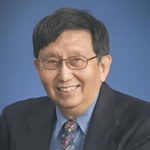What makes one life rich in poverty and another unfulfilling in abundance? Why do some organizations thrive in difficult times, while others languish in prosperity? One may also ask: What turns an average student into an outstanding success and a gifted student into a failure?
The answer may be found in the seriousness of purpose. In spite of its appearance as a simple and hackneyed concept, purpose has the potential to affect everything that really matters in life and death. In fact, our survival, both individually and collectively, depends on it.
I can tell you dozens of success stories of mediocre students that became high achievers. In most cases, this transformation occurs when someone ignites a spark in their soul and awakens a sense of purpose.
My research on student retention tells a similar story: Students attending university because of parental pressure or school social life tend to underachieve, whereas students with a clear sense of purpose tend to excel.
Purpose also plays a vital role in career attainment. It is difficult to get excited about going to work when there is a mismatch between one’s life purpose and the job. On the other hand, one cannot help but become highly motivated when passionate about what work represents.
Such passion seldom comes from a pay raise or promotion; it can only stem from a deep sense of calling and commitment to serve someone or some cause much larger than oneself. This is perhaps the best-kept secret in motivational psychology.
Perhaps, a good starting point for a purposeful life is a personal mission statement. For example, the Apostle Paul said, “To me to live is Christ.” What a simple statement! And yet, what an abundance of energy followed from this conviction!
Paul declared: “But one thing I do: Forgetting what is behind and straining toward what is ahead” (Phil.3:13). Nothing, not even death, could stop Paul from achieving his mission.
The same principle applies to organizations as well. In the highly competitive global market, organizations that have the best chance of survival are driven by a clear sense of purpose beyond the bottom line. Recent corporate scandals have taught us that a high-sounding mission statement by itself is not sufficient; every aspect of the corporation needs to be driven by a higher purpose.
Biologists and psychologists have long recognized that purposiveness is hardwired in all animal species – the survival instinct. A major part of animal activities are directed to the goal of pursuing life’s necessities in order to survive.
For humans, their brain is designed for purposeful living beyond mere survival. Happiness and health depend on our capacity to project into the future and anticipate success in achieving cherished life goals. Such a purposeful future orientation provides direction, energy, and satisfaction, even when survival becomes too painful to endure.
Dr. Viktor Fankl, the founder of logotherapy, demonstrated the power of purpose in surviving Nazi death camps. Similarly, many victims of trauma and the chronically disabled would not have survived without a strong sense of meaning and purpose, which gives them certain measures of hope and joy in spite of suffering.
According to Dr. Frankl, a greater threat to Western civilization is not the terror of physical suffering, but the epidemic of “existential neurosis.” When there is an absence of purpose, when one’s life is basically aimless and meaningless, the brain begins to deteriorate, and life becomes unbearable because of boredom. An existential vacuum leads to depression, violence and addiction. Just witness the prevalence of depression among children of the super-rich, or the high incidents of drug addiction among celebrities!
Of course, the complexity of purpose cannot be adequately addressed in a short essay. Suffice to say that levels of purpose affect both our present life and our destiny.
What is the purpose of your life? The choice is entirely yours. A moment’s pausing to reflect on this fundamental question may yield blessings that last more than a lifetime.


 Meaning Conference 2025 will be the INPM’s first in-person conference with a virtual option after the pandemic.
Meaning Conference 2025 will be the INPM’s first in-person conference with a virtual option after the pandemic.